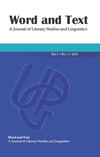Memorial Ethics

In my second major monograph, on Daniel Libeskind’s Berlin Jewish Museum, I coined the concept of ‘memorial ethics’ and explored how it operates within that museal space. Modelled on a lesser-known aspect of Emmanuel Levinas’s ‘first philosophy’, ‘memorial ethics’ refers to the obligation to conceive of memory as bearing witness, a testimonial act bringing the invisible to the level of the visible that is made necessary after the Shoah, once art had to be infused with a different ethics of representation. I analyzed Libeskind’s architectural project starting from Levinas’s equation between ethics and optics, which I framed within the broader context of a joint post-Holocaust poetics and cultural politics of memory.
I return to this concept in an essay, still in progress, focusing on the Shanghai Jewish Refugees Museum, one of whose sections is ‘The Journey of Hope’. Entitled ‘Towards a Memorial Ethics of Hope: The Shanghai Jewish Refugees Museum’, the essay extends my previous reflection by taking as a point of departure the curators’ strategy to bring into the visible an ethics of hope which invokes a community and is future-oriented.
